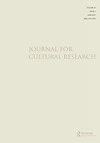The politics of irony, reconsidered
IF 0.6
Q1 CULTURAL STUDIES
引用次数: 2
Abstract
ABSTRACT Franco ‘Bifo’ Berardi concludes his analysis of critical malaise in late capitalism with a bold call to arms: post-liberal dystopia must be faced and dissolved by irony. He argues for a renewed ironic autonomy, which emphasises the independence of mind from knowledge and the excessive nature of the imagination. Developing Berardi’s argument, I suggest there are three obstacles to theorising irony as a form of politics. The first is that a politics of irony is often accused of being either a fraudulent or amoral form of politics, which has itself allowed a post-liberal malaise to fester and grow. The second problem is that irony may no longer be simply an ambivalent tool of critique from the edges of political discourse, but instead a tool which perpetuates its very centre. The third problem is that theorising the performance and place of irony in relation to political critique often results in a slippage from the complexity of the second problem to the impasse of the first. I argue that Berardi’s ‘ironic autonomy’ is entirely possible, so long as the politics of irony is understood as depending on the different forms and media of interpretative space through which contemporary politics takes place.政治的讽刺,重新考虑
摘要:Franco‘Bifo’Berardi在对晚期资本主义批判困境的分析中,大胆地呼吁武装起来:后自由主义的反乌托邦必须通过讽刺来面对和化解。他主张一种新的讽刺自主性,强调思想与知识的独立性和想象力的过度本质。在发展贝拉迪的论点时,我认为将讽刺作为一种政治形式进行理论化有三个障碍。首先,讽刺政治经常被指责为一种欺诈或不道德的政治形式,这本身就让后自由主义的弊病恶化和发展。第二个问题是,讽刺可能不再只是一种来自政治话语边缘的矛盾批判工具,而是一种使其中心永久存在的工具。第三个问题是,将讽刺在政治批评中的表现和位置理论化,往往会导致从第二个问题的复杂性滑向第一个问题的僵局。我认为,贝拉迪的“讽刺自主性”是完全可能的,只要讽刺政治被理解为取决于当代政治发生的不同形式和媒介的解释空间。
本文章由计算机程序翻译,如有差异,请以英文原文为准。
求助全文
约1分钟内获得全文
求助全文
来源期刊

Journal for Cultural Research
CULTURAL STUDIES-
CiteScore
1.40
自引率
0.00%
发文量
23
期刊介绍:
JouJournal for Cultural Research is an international journal, based in Lancaster University"s Institute for Cultural Research. It is interested in essays concerned with the conjuncture between culture and the many domains and practices in relation to which it is usually defined, including, for example, media, politics, technology, economics, society, art and the sacred. Culture is no longer, if it ever was, singular. It denotes a shifting multiplicity of signifying practices and value systems that provide a potentially infinite resource of academic critique, investigation and ethnographic or market research into cultural difference, cultural autonomy, cultural emancipation and the cultural aspects of power.
 求助内容:
求助内容: 应助结果提醒方式:
应助结果提醒方式:


